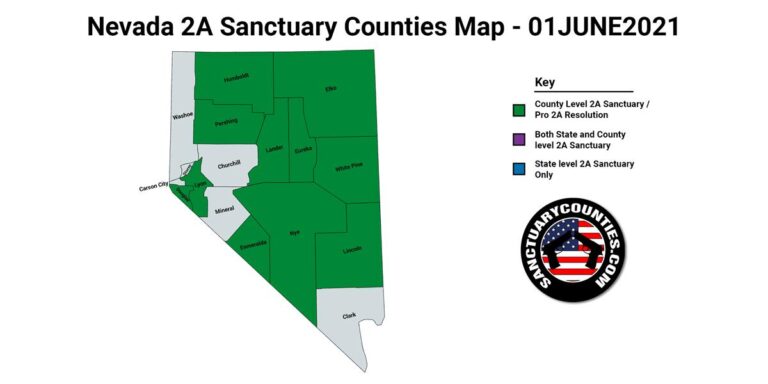Nevada’s New Sanctuary State Status: Legal, Social, and Enforcement Perspectives
Legal and Political Controversies Surrounding Nevada’s Sanctuary State Status
The U.S. Department of Justice’s recent classification of Nevada as a sanctuary state has intensified debates within legal and political circles. Nevada’s state government has enacted policies that restrict collaboration with federal immigration authorities, aiming to safeguard immigrant populations and assert state sovereignty. Opponents argue these measures compromise public safety and hinder federal immigration enforcement efforts. This clash underscores the ongoing friction between state independence and federal immigration mandates.
Central issues fueling the debate include:
- Litigation risks: Multiple lawsuits challenge Nevada’s sanctuary policies, claiming they conflict with federal immigration statutes and threaten the state’s eligibility for federal funding.
- Political divisions: Lawmakers and local officials remain split, with some pushing for stricter immigration enforcement and others defending sanctuary policies as vital for community trust and social welfare.
- Public sentiment: Polls reveal a deeply divided public, with opinions varying substantially by region and demographic factors, reflecting the complexity of immigration discourse.
| Group | Stance | Consequences |
|---|---|---|
| State Officials | Endorse sanctuary policies | Enhanced protection for immigrant residents |
| Federal Agencies | Oppose designation | Risk of funding cuts and enforcement challenges |
| Local Police | Varied opinions | Balancing law enforcement duties with community relations |
| Advocacy Organizations | Supportive | Advocate for immigrant rights and integration |
Challenges and Opportunities in State-Federal Law Enforcement Cooperation
Nevada’s sanctuary state designation presents both obstacles and prospects for collaboration between state and federal law enforcement agencies. Divergent priorities regarding immigration enforcement require agencies to establish robust interaction frameworks and clear operational guidelines. This approach aims to maintain public safety while respecting Nevada’s policy choices.
Key focus areas for law enforcement moving forward include:
- Creating clear communication channels that honor state policies alongside federal immigration objectives.
- Implementing joint training initiatives to harmonize enforcement tactics and build mutual trust.
- Concentrating on crimes that directly threaten public safety to ensure efficient use of resources amid jurisdictional complexities.
| Collaboration Element | State Priorities | Federal Priorities |
|---|---|---|
| Data Sharing | Safeguard privacy of undocumented individuals | Enhance border security and immigration enforcement |
| Immigration Detainer Compliance | Restrict adherence to detainer requests | Enforce mandatory holds on specific detainees |
| Allocation of Resources | Focus on community policing and crime prevention | Prioritize immigration-related operations |
Community Reactions and Local Leadership Perspectives
The sanctuary state designation has elicited a wide range of responses from local leaders and residents. Governor Lisa Hernandez praised the policy, highlighting its emphasis on human dignity and public safety rather than strict federal enforcement. “Our goal is to foster trust so that all residents feel secure in reporting crimes and accessing essential services,” she stated during a recent press conference. Simultaneously occurring, some county sheriffs expressed apprehension about potential clashes with federal agencies and the need for additional resources to manage any repercussions.
Public opinion across Nevada is similarly mixed. Community forums and town hall meetings have surfaced several common themes among supporters:
- Strengthening social bonds: Many view the sanctuary status as a step toward greater inclusivity and solidarity.
- Economic advantages: Advocates argue that a stable immigrant workforce bolsters local economies.
- Legal protections: Some residents appreciate the clearer safeguards for individual rights.
However, concerns persist regarding:
- Safety risks: Worries about diminished cooperation with law enforcement agencies.
- Federal funding: Anxiety over potential reductions in federal financial support.
Guidance for Immigrants: Safeguarding Rights and Navigating Enforcement
Immigrant communities and their advocates are encouraged to stay well-informed about their legal rights and local enforcement policies to ensure personal safety and legal protection. Understanding how to interact with law enforcement is essential: individuals should avoid volunteering data beyond what is legally required and always request legal counsel if detained or questioned. Community organizations and legal aid services play a crucial role in providing support, especially in sanctuary jurisdictions where state laws may offer additional protections.
Here is a practical guide to help immigrants protect their rights during encounters with law enforcement:
- Know your rights: You have the right to remain silent and to request an attorney.
- Record details: Document officers’ names, badge numbers, and the time and location of interactions.
- Limit documents carried: Only carry identification when legally necessary to minimize risks during stops.
- Maintain communication: Inform trusted contacts of your whereabouts, especially when traveling or attending sensitive events.
- Report misconduct: Use hotlines or community groups to promptly report any abuse or unlawful detention.
| Scenario | Recommended Response | Support Resources |
|---|---|---|
| Stopped by Police | Politely decline to answer questions; request a lawyer | Legal aid hotlines |
| Home or Workplace Raid | Do not open door without a warrant; contact attorney immediately | Community legal organizations |
| Witnessing Abuse | Discreetly document details; report promptly | Local immigrant advocacy groups |
Conclusion: Nevada’s Sanctuary Status and Its Broader Implications
Nevada’s official recognition as a sanctuary state by the U.S. Department of Justice marks a pivotal moment in the evolving dialog on immigration enforcement and state-federal relations. The ongoing debates among policymakers, law enforcement, and communities reflect the delicate balance between ensuring public safety and upholding humanitarian values. How Nevada navigates these challenges will likely influence national immigration policies and the future of sanctuary jurisdictions across the country. Stay tuned for continued updates on this developing story.




